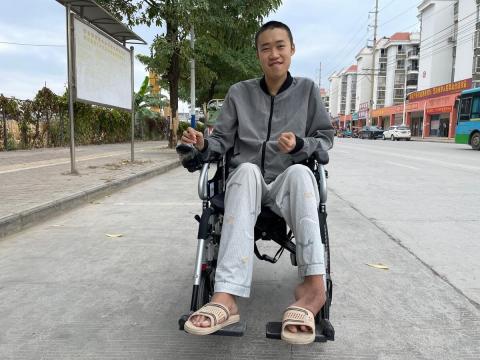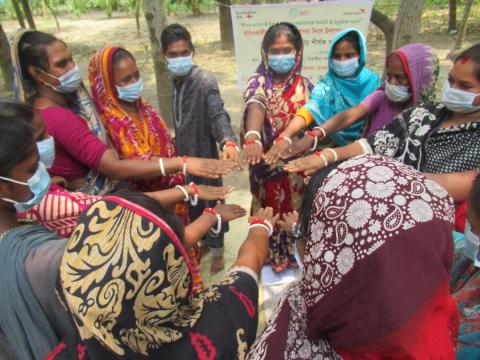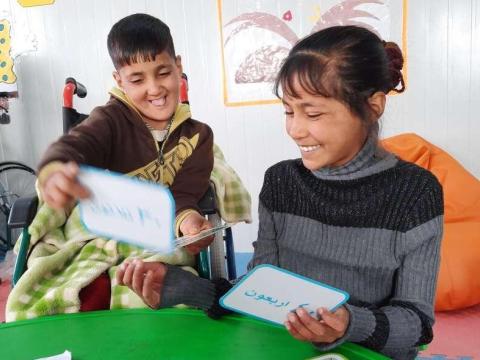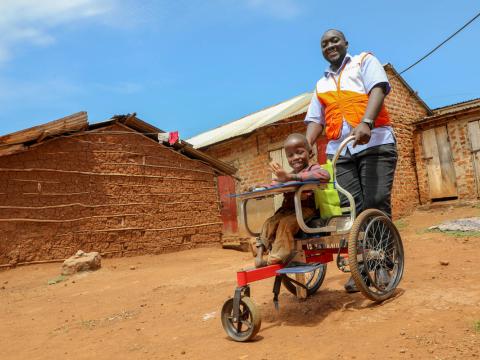
What do children with disabilities need most? Co-operation and a chance to thrive.
Brian Kusunoki says that better co-ordination among support services and service providers is vital to supporting children and young people with disabilities.
A recent UNICEF report [1] estimates that 240 million children have disabilities globally. China has an estimated 5 million children with disabilities [2] - that’s just shy of the population of New Zealand.
In my experience, these children are a joy, with endless potential given the right care and support. Nevertheless, they are more vulnerable than those children without a disability—especially if their families are struggling economically. They are 34% more likely to be stunted, 47% more likely to be out of primary school, 41% more likely to feel discriminated against and 32% more likely to experience severe physical punishment at home.
It is not just the number of children with disabilities that is the challenge for Chinese society. Several other factors mean that society and organisations responsible for helping these children and their families face an uphill battle. These include the high costs associated with caring for these children. Not all families are set up to support a child with additional needs—practically or emotionally. Not all professionals are trained to ensure that children with disabilities have the care and access they require.
Collaboration is key
Even when they do, there is still inevitably a lack of coordination between specialists and services tasked to help them. Whether in a rehabilitation centre, special school or orphanage, there is all too often insufficient coordination between teachers, caregivers, social workers, and medical staff. They rarely meet together to share what they know about looking after these children, and so the services provided to a child are rarely integrated.
This has been one of the biggest stumbling blocks to helping children with disabilities to live life in all its fullness, and so World Vision decided to launch a cross-disciplinary co-operation approach in local institutions that encourages professionals to meet together to discuss the needs and development plans of every child case by case, and what can be provided by which service provider.
Proposing such new ways of working inevitably brings some opposition, so relationship-building as well as sharing stories of success were central to getting all actors on board and working together for the good of the children. It has also been important to set up groups of children who themselves have been able to input into discussion around their care.
Celebrating the wins
The outcome of this programme has looked like the story of XiaoQiang. Born with cerebral palsy and abandoned by his parents, our staff got to know him when he was in the Children’s Welfare Institution, one of World Vision's long-time partner organisations in northwestern China. The co-operation model meant to XiaoQiang received more holistic help and support. He received targeted rehabilitation training enabling him to walk, write, and use computers without relying on assistive devices, living in a "community family", and he received a preschool education, laying the foundation for future education.
He then advanced to vocational school to learn computer programming and is now employed part-time as a computer coding engineer. He has a dream to become a top professional coding engineer and he aims to take more classes to achieve this.
Though XiaoQiang was abandoned, he has now becomes more and more independent. He hopes to one day be able to reunite and reconcile with his parents. He also plans to help others like him, by donating to help World Vision continue their work with children with disabilities.
These children are so often written off or ignored by society. Stories of young people like XiaoQiang show that collaboration and a willingness to support the dreams of every child can make all the difference.
To learn more about World Vision's work in China here
Brian Kusunoki is Head of Resource Development and Philanthropy Advisor for World Vision’s East Asia Office.
[1] “Seen, Counted, Included- Using data to shed light on the well-being of children with disabilities”, UNICEF, 2021.
[2] Children in China: An Atlas of Social Indicators, 2018. National Working Committee on Children and Women, National Bureau of Statistics, UNICEF


